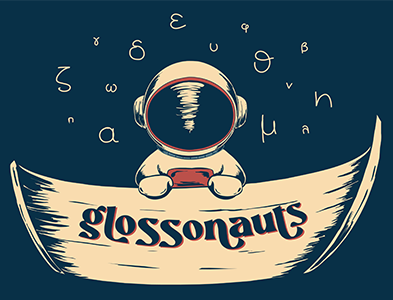
Greek slang is lively and constantly changing, influenced by pop culture and English. Learning these phrases helps you connect with locals and understand modern Greek culture. Here are some popular slang terms with translations, meanings, and examples.
Πιστολιάζω /pistoliázo/
While “πιστολιάζω” literally means “to shoot,” in slang, it refers to canceling plans or not showing up, leaving someone hanging.
Example: “Μου είπε ότι θα έρθει, αλλά με πιστολιάζει συνέχεια.”
(“He said he’d come, but he keeps canceling on me.”)
Έχω μπιφ /ého beef/
Borrowed from English, “beef” in Greek slang refers to a disagreement or conflict with another person.
Example: “Έχω μπιφ με τον Νίκο, δε μιλιόμαστε.”
(“I have an argument with Nikos; we’re not talking.”)
Φλεξάρω /flexáro/
“Φλεξάρω” comes from the English word “flex,” meaning to show off, usually material possessions or achievements.
Example: “Πάλι φλεξάρει το καινούριο του αμάξι.”
(“He’s showing off his new car again.”)
Το ‘λουσα /to lousa/
Literally it means “I bathed it”. This phrase is used when someone makes a mistake or messes something up, as if they’ve overdone it.
Example: “Νόμιζα ότι θα ήταν εύκολο, αλλά το ‘λουσα.”
(“I thought it would be easy, but I messed it up.”)
Τσιλάρω /tsiláro/
This term is borrowed from the English word “chill” and means to relax, unwind, or take a break.
Example: “Μετά τη δουλειά θα τσιλάρω στο σπίτι.”
(“After work, I’m going to chill at home.”)
Μαρούλι /maroúli/

“Μαρούλι” (lettuce) is slang for money, similar to how “lettuce” or “green” is used in English to refer to cash.
Example: “Έβγαλε πολύ μαρούλι αυτό το καλοκαίρι.”
(“He made a lot of money this summer.”)
Όλα μπόμπα /óla bomba/
The word “μπόμπα” (bomb) is used positively here to describe something excellent or flawless.
Example: “Πώς ήταν το πάρτι χθες; Όλα μπόμπα!”
(“How was the party yesterday? Everything was perfect!”)
Στα καπάκια /sta kapákia/
Literally, it means “on the caps”. This phrase describes something that happens right after something else, without delay.
Example: “Γύρισα σπίτι και στα καπάκια έφυγα πάλι.”
(“I came home and immediately left again.”)
If you want to better understand the pronunciation check this video:
Τζετ /jet/
“Τζετ” is used to describe something that is perfect or in top condition, similar to saying something is “smooth” or “on point.”
Example: “Η καινούρια τσάντα είναι τζετ!”
(“The new bag is perfect!”)
Κατεβάζω ρολά /katevázo rolá/
This phrase signifies stopping an activity, similar to how a store closes by lowering its shutters.
Example: “Μετά από 10 ώρες δουλειάς, κατεβάζω ρολά.”
(“After 10 hours of work, I’m shutting down.”)
Γιολάρω /yoláro/
Derived from the English acronym YOLO, it describes taking life easy or not worrying too much.
Example: “Σήμερα δεν έχω δουλειά, γιολάρω όλη μέρα.”
(“I don’t have work today, so I’m lazing around all day.”)
Έφαγα πακέτο /éfaga paketo/

Literally it means “I ate a package”. This phrase describes a difficult or unpleasant experience, similar to saying “I went through a tough time.”
Example: “Έφαγα πακέτο στη δουλειά σήμερα, όλα πήγαν στραβά.”
(“I had a hard time at work today; everything went wrong.”)
Κριντζάρω /krindzaro/
Borrowed from English (cringe), “κριντζάρω” is used when someone feels embarrassed or uncomfortable due to something awkward or embarrassing.
Example: “Κριντζάρω κάθε φορά που ακούω τη φωνή μου σε ηχογράφηση.”
(“I cringe every time I hear my voice in a recording.”)
These phrases give you a glimpse into Greek slang, showing how the language can be playful and expressive. These terms can help you connect better with Greek speakers and keep up with current conversations.
Aaaand….if you truly want to start mastering Greek in style, we recommend starting with our Greek Crash Course.
To get a 20% discount use the coupon: GREEK20

See you in the next one,
Ta leme!







0 Comments